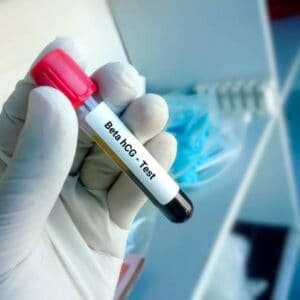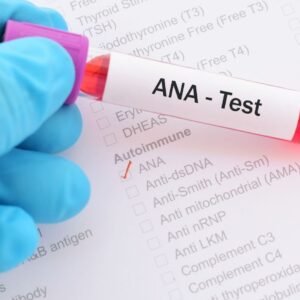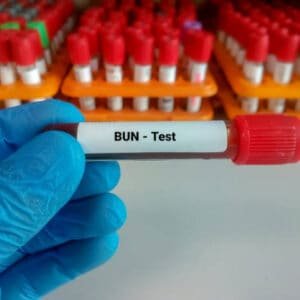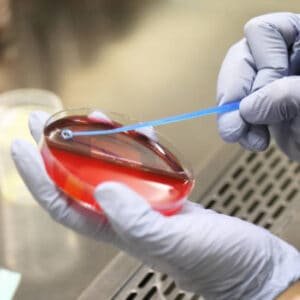Description
Vitamin B Test
What is a vitamin B test?
This test measures the amount of one or more B vitamins in your blood or urine. B vitamins are nutrients the body needs so that it can perform a variety of essential functions. These include:
- Maintaining normal metabolism (the process of how your body uses food and energy)
- Making healthy blood cells
- Helping the nervous system work properly
- Reducing risk of heart disease
- Helping to lower bad cholesterol (LDL) and increase good cholesterol (HDL)
There are several types of B vitamins. These vitamins, also known as the B vitamin complex, include the following:
- B1, thiamine
- B2, riboflavin
- B3, niacin
- B5, pantothenic acid
- B6, pyridoxal phosphate
- B7, biotin
- B9, folic acid (or folate) and B12, cobalamin. These two B vitamins are often measured together in a test called vitamin B12 and folate.
Vitamin B deficiencies are rare in the United States, because many everyday foods are fortified with B vitamins. These foods include cereals, breads, and pasta. Also, B vitamins are found naturally in a variety of foods, including leafy green vegetables and whole grains. But if you do have a deficiency in any of the B vitamins, it can cause serious health problems.
Other names: vitamin B testing, vitamin B complex, thiamine (B1), riboflavin (B2), niacin (B3), pantothenic acid (B5), pyridoxal phosphate (B6), biotin (B7), vitamin B12 and folate
What is it used for?
Vitamin B testing is used to find out if your body is not getting enough of one or more B vitamins (vitamin B deficiency). A vitamin B12 and folate test is often used to check for certain types of anemia.
Why do I need a vitamin B test?
You may need this test if you have symptoms of a vitamin B deficiency. Symptoms vary depending on which B vitamin is deficient, but some common symptoms include:
- Rash
- Tingling or burning in the hands and feet
- Cracked lips or mouth sores
- Weight loss
- Weakness
- Fatigue
- Mood changes
You may also need testing if you have certain risk factors. You may be at a higher risk for a vitamin B deficiency if you have:
- Celiac disease
- Had gastric bypass surgery
- A family history of anemia
- Symptoms of anemia, which include fatigue, pale skin, and dizziness
What happens during a vitamin B test?
Vitamin B levels may be checked in blood or urine.
During a blood test, a health care professional will take a blood sample from a vein in your arm, using a small needle. After the needle is inserted, a small amount of blood will be collected into a test tube or vial. You may feel a little sting when the needle goes in or out. This usually takes less than five minutes.
Vitamin B urine testing may be ordered as a 24-hour urine sample test or a random urine test.
For a 24-hour urine sample test, you’ll need to collect all urine passed in a 24-hour period. This is called a 24-hour urine sample test. Your health care provider or a laboratory professional will give a container to collect your urine and instructions on how to collect and store your samples. A 24-hour urine sample test generally includes the following steps:
- Empty your bladder in the morning and flush that urine away. Record the time.
- For the next 24 hours, save all your urine passed in the container provided.
- Store your urine container in the refrigerator or a cooler with ice.
- Return the sample container to your health provider’s office or the laboratory as instructed.
For a random urine test, your sample of urine may be collected any time of the day.
Will I need to do anything to prepare for the test?
If you are having a vitamin B blood test, you may need to fast (not eat or drink) for several hours before the test.
You don’t need any special preparations for a urine test.
Are there any risks to the test?
There is very little risk to having a blood test. You may experience slight pain or bruising at the spot where the needle was put in, but most symptoms go away quickly.
There is no known risk to having a urine test.
What do the results mean?
If your results show you have a vitamin B deficiency, it can mean you have:
- Malnutrition, a condition that happens when you don’t get enough nutrients in your diet.
- A malabsorprtion syndrome, a type of disorder where your small intestine can’t absorb enough nutrients from food. Malabsorption syndromes include celiac disease and Crohn’s disease.
Vitamin B12 deficiencies are most often caused by pernicious anemia, a condition in which the body does not make enough healthy red blood cells.
If you have questions about your results, talk to your health care provider.
Is there anything else I need to know about vitamin B testing?
Vitamin B6, folic acid (vitamin B9), and vitamin B12 play a key role in maintaining a healthy pregnancy. While pregnant women are not routinely tested for vitamin B deficiencies, nearly all pregnant women are encouraged to take prenatal vitamins, which include B vitamins. Folic acid, in particular, can help prevent birth defects of the brain and spine when taken during pregnancy.






Reviews
There are no reviews yet.